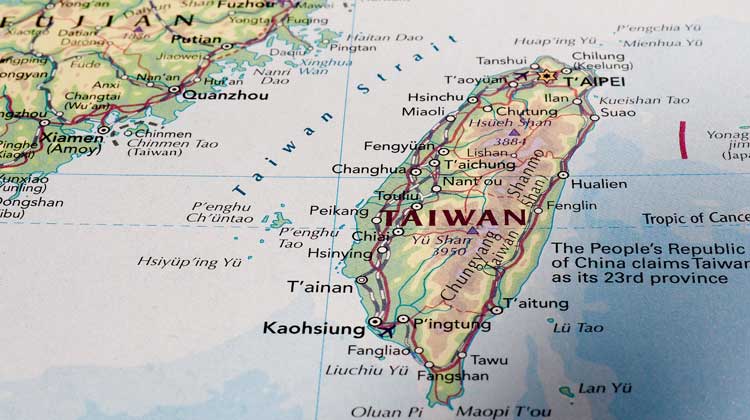
WASHINGTON—The Trump administration should take a stronger stance to defend Taiwan against growing “maritime insurgency” from China, according to scholars at a Hudson Institute forum June 7.
Taiwan sits at the heart of the battle for the South China Sea, crisscrossed by multi-trillion-dollar trade routes that carry most of China’s energy imports. As such, China continues beating war drums toward Taiwan and enticing the international community to isolate the island—even going so far as pressuring in-flight magazines to not recognize Taiwan as a country.
Arthur Herman, a senior fellow at Hudson Institute, said U.S. policy toward Asia is in disarray.
Withdrawn leadership, trade squabbles, and an undercut Navy have put the United States at a disadvantage in the region, Herman said. But Taiwan and the South China Sea provide a stage for the United States to show strong leadership.
“Taiwan is the cork in the bottle that keeps China from dominating the region,” Herman said.
Increased military support and a strengthened allegiance would help signal U.S. leadership across Asia, he added. Herman worries that after the Obama administration’s “strategic patience” and “lead-from-behind” strategies, allies and adversaries alike see the United States as having a weaker hand in the region.
China’s influence, however, extends beyond the South China Sea. Through their Belt and Road Initiative, the country aims to expand its power through investing in infrastructure projects and bolster its influence in Asia as well as Europe. Through ports, roads, and bridges, China is rebuilding a modern Silk Road and maritime trade network that Herman sees as a shift in the global balance of power.
As China grows its trade, panelists agreed the United States is shrinking from the world stage and charting a more isolationist path on trade. Withdrawing from the Trans-Pacific Partnership created “friction” with Japan, and despite Trump and Japanese Prime Minister Shinzo Abe’s warm early relationship, Trump’s trade policies have cooled their friendship, Herman said.
Still, he applauded Trump’s hardline rhetoric against China and said he sees the Trump administration as the only one that can push back forcefully against China.
Other panelists said, however, that despite tough talk, little action has followed.
Ian Easton, a research fellow at the Project 2049 Institute, thought finding instances of Trump’s support for Taiwan in his first 500 days would be easy, but it wasn’t.
“I could only think of two,” he said.
Since taking office, Trump finalized a $1.4 billion Obama-era arms deal and renewed assistance for Taiwan’s submarine program. But Easton added that Taiwan’s defense is “much more” than just military hardware; Trump’s rhetoric and moral support are also important.
“I would have to say that this administration gets more than a passing grade,” he said.
Specifically, Easton noted Secretary of Defense James Mattis’s flattering remarks to Taiwan at a defense conference in Singapore as a step in the right direction. Trump also signed legislation allowing U.S. generals to meet with their Taiwan counterparts—a move that angered China, Reuters reported.
China still has considerable leverage over Taiwan. Its military dwarfs Taiwan’s with more than 2 million active personnel, and their Belt and Road Initiative has strengthened diplomatic support for the mainland over Taiwan.
Patrick Cronin, senior director for the Asia-Pacific Security Program at the Center for a New American Security, sees the Trump Administration striking a balance with its Asia policy. Too much overt military support could act as a justification for China’s aggression, he said.
“We are trying to maintain a status quo, but it is a dynamic status quo,” Cronin said.
Freshly back from a trip to Asia, he agreed with Herman that the United States needs to show stronger regional leadership. Taiwan’s President Tsai Ing-Wen told Cronin directly they want stronger U.S. support, he said.
“If America is not loud about this,” Cronin added, “no one else will be.”
Jackson Barnett is a staff writer for Homeland411
© 2018 Homeland411
Click here to subscribe to the Homeland411 electronic newsletter.